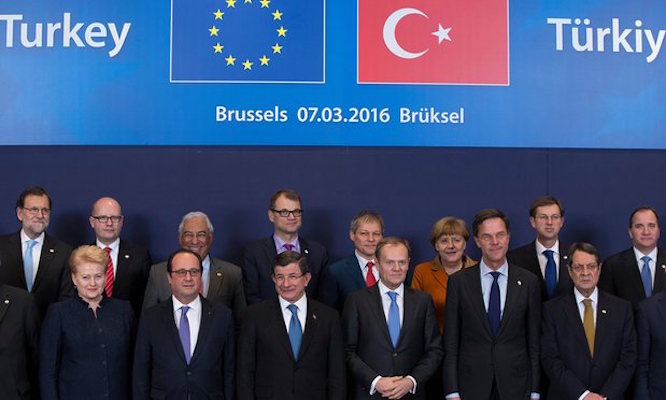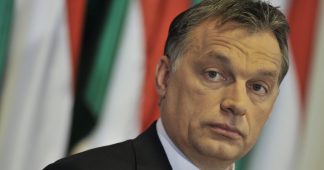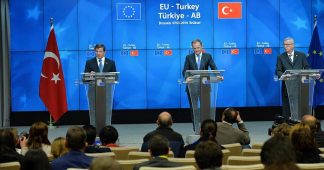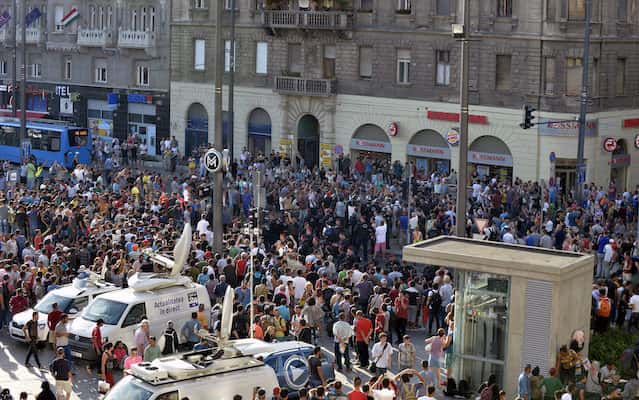By Dr. Nikolay Tomov, executive director of “Slaviani”Foundation” at the International conference “Refugees from the Perspective of International Migration Issues: Diversities, Cross-Cultural Communication and Tolerance”, held on 26-27 May, 2016 in Istanbul, Turkey
It is probably by pure chance, but the coincidence is quite striking! Our conference is held only a few days after the convening, in this very city of Istanbul, of the first ever World Humanitarian Summit, aimed at revising and improving the structure of humanitarian aid within the framework of the United Nations.
There are two main reasons for convening this forum. The first is the need to revise and improve the structure of humanitarian aid within the framework of the United Nations. But more important is the second reason – Turkey’s new approach to humanitarian diplomacy, adopted in recent years, and the fact that it is home to some three million Syrian refugees, making it the world’s largest host of displaced people. The role of Turkey in the efforts to solve these acute humanitarian problems is positioned somewhere between the traditional Western donors and the groups of emerging actors, such as Brazil, India and China. With regard to the policies it follows, Turkey’s approach can be described widely as peacebuilding, with a broad framework that relies on integrating the tools of diplomacy, humanitarian aid and development.
Turkish President Recep Tayyip Erdogan, expressed once again this position with the promise at the Summit: “We will never close our doors, our borders, to people and to humanity.”
Let us now turn back to the migration problem that is the subject of our discussion, to the challenges looming in front of Europe and the crisis that is threatening the Old continent. It is an uncontested fact that never, since World War II, have we witnessed such a large surge of refugees, fleeing civil war and conflict, all of them heading towards the gates of Europe.
While EU governments are overwhelmed by the sheer numbers of Syrians, Afghans and Iraqis, there’s an icreased helplessness about how to offer the refugees humanitarian aid, and the bigger issue of granting political asylum, namely the right to legally settle.
Five are the main challenges, looming in front of Europe as a whole and the Balkans in particular, that have become strikingly evident.
First, the formidable task of shelter, feeding, water, hygiene, medical aid and all other urgent needs, combined with language problems, identification and registration procedures, lost (accidentally or on purpose) personal papers.
Second, EU member states, are at loggerheads over the migration issue. Many countries, especially in Central Europe — some vehemently, others quietly — blame Germany’s Chancellor Angela Merkel for triggering the wave of newcomers by her message of welcome, spurred by a humanitarian impulse to help people clearly in need. Even The Times newspaper, pointed to “Merkel’s Migrants” in a page-one headline. Meanwhile, within her own political party, the CDU, and its Bavarian sister party, the CSU, debates, concerning her words, have been boiling ever since.
Take for example the proposed plan of mandatory quotas. Only a few migrants have been relocated so far. The resistance to resettlement by some EU countries, especially the Balkan and the Central European ones, has been fierce. They insist that they were not consulted in the original decision and, in any case, already have enough social and economic difficulties without adding new problems.
The third challenge is probably one of the most important ones, because of its security aspects. The migration wave this time differed from the orderly process, with applicants filling out applications and being screened beforehand, and only if approved, moving to a country prepared to receive them. This time it was a real wave. Overwhelmingly male and young, the migrants have reached Europe’s shores or gates in unprecedented numbers, often after harrowing journeys, with identity papers that may or, in some cases, may not be authentic, or with none at all. How can receiving countries establish in each and every case who they are and verify their stories?
According to reports, a certain percentage who claim to be Syrian are not, but declare themselves to be because an informal pipeline, using social media, has conveyed that Syrians have the best chance for filing successful asylum applications in Europe.
On one hand, there are fears that ISIS and other groups are infiltrating terrorists into the human wave, perhaps even providing them with stolen or counterfeit IDs. These fears have been intensified by the attacks in Paris and Brussels. On the other hand, there is concern that if disillusion should set in among some newcomers — because reality does not match their expectations — jihadist cells will try to lure them as foreign fighters or local operatives.
As it is, many European security agencies are even now overwhelmed by the current challenges of tracking thousands of suspects, especially those who have traveled to Iraq and Syria and returned, and their recruiters.
The fourth challenge is the cultural integration of the newcomers. As we have seen, many EU member states have had until now difficulties in integrating waves of migrants from the Middle East and North Africa. Take for example Molenbeek in Belgium, Malmö in Sweden, different Paris subusrbs. Are they not examples of marginalized, forlorn communities that too often have resulted in parallel societies, with high student dropout rates, unemployment and violence, and the blossoming of extremist religious groups. It should be underlined also that quite a number of foreign fighters are second-generation, born in France, Belgium, the U.K., etc.
In addition, the new migrants come from overwhelmingly non-democratic societies — Syria, Iraq, Afghanistan, Yemen, Eritrea, etc. They often have had little experience with norms of Western countries, including gender equality, faith as a private choice, separation of religion and state, and pluralism and mutual respect, and may or may not find the transition easy to embrace.
The final challenge is that migration appears to have no end in sight. On one hand millions more are hoping and trying to escape endemic war, poverty, and despair in the Middle East and Africa. On the other those, who have already made it to Europe, wish and will try, to reunite with family members left behind.
Thus we come to the crisis that is also the topic of my contribution. The five aforementioned challenges have created a troubling backlash, in many Balkan and European countries, as France, UK, Sweden, Denmark, Germany, Hungary, Poland, most recently in Austria, fueling populist movements that assail the political establishment and the concentrated power of the EU, question Europe’s ability and will to control its own borders, and advocate nationalist platforms.
Thus, Europe, which has achieved such an extraordinary degree of postwar peace and cooperation, is now buffeted by large-scale migration, growing security concerns, internal feuding, invigorated extreme right-wing movements and questions about its capacity to respond effectively to issues that may well define the character and cohesion of European nations in the years ahead.
In other words, the stakes could not be higher. Whether the EU and its 28 member states will pass the test of their most severe crisis to date, namely “To be or not to be”, remains to be seen. Britex is the next, but by no means last, hurdle of this Hamletian test of “To be or not to be”.
I personally prefer it “To be”. But, Iinshallah!











